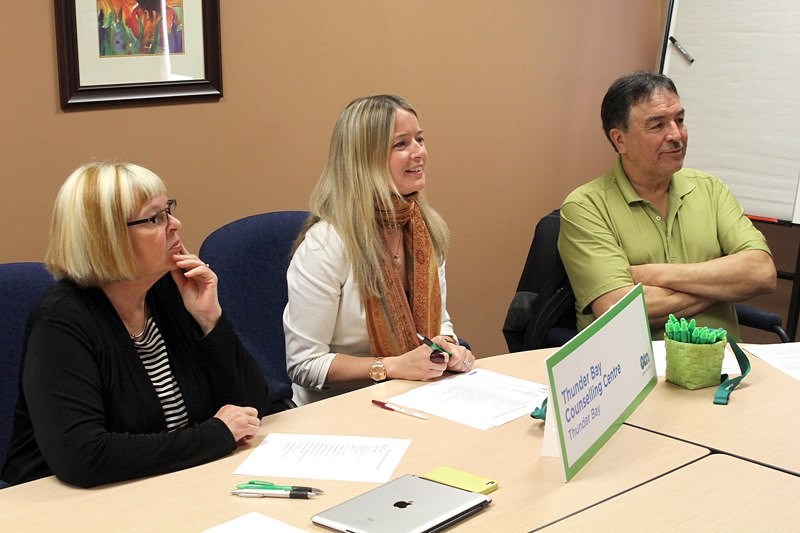Nancy Chamberlain says 20 years ago, several women walked into the Thunder Bay Counselling Centre and announced they were suffering from postpartum mood disorder.
At the time, counselors weren’t sure what to do.
“At the time, we knew very little about postpartum mood disorder,” Chamberlain said Friday, speaking to a North Bay audience, gathered for an $245,1000 announcement on the expansion of the Northern Ontario Postpartum Mood Disorder Project.
Two decades later and Chamberlain says treatment of PPMD has come a long way. But there’s still plenty of work left to be done.
The money, provided through the Ontario Trillium Foundation, will be used to gather personal stories from women and men suffering from the disorder, which will then be used to let new parents know they’re not alone.
According to the latest data, one in five women suffers from PPMD. But one in 10 men also are afflicted, as are one in 30 adoptive parents.
Until a year ago, when the project was first launched in the North Bay area, there hadn’t been any attempt to create a province-wide strategy.
It’s well beyond due, Chamberlain said. And for good reason, she added.
“I think the interesting part of it is it often doesn’t get diagnosed,” she said. “It also hides within anxiety and depression.”
Northern Superior Regional Chief Peter Collins admitted he wasn’t familiar with the seriousness of PPMD, but given the growing birth rates in First Nations communities, he’s fully aware it’s a problem. Unfortunately in many communities, access to counseling isn’t readily available.
That’s why he supports the expansion of the PPMD project.
“It’s a challenge for our young parents to deal with this issue,” Collins said. “There’s work that needs to be one on the First Nations on PPMD.”
It’s a rough time for young parents, he added.
“They’re struggling. They don’t understand why they’re struggling. This is another step in the right direction to help and guide the parents in our communities, and not just our communities,” Collins said.
The PPMD project is a partnership with the Thunder Bay Counselling centre, the Community Counselling Centre of Nipissing and the B’saanibamaadsiwin Aboriginal Menthal Health Program.
